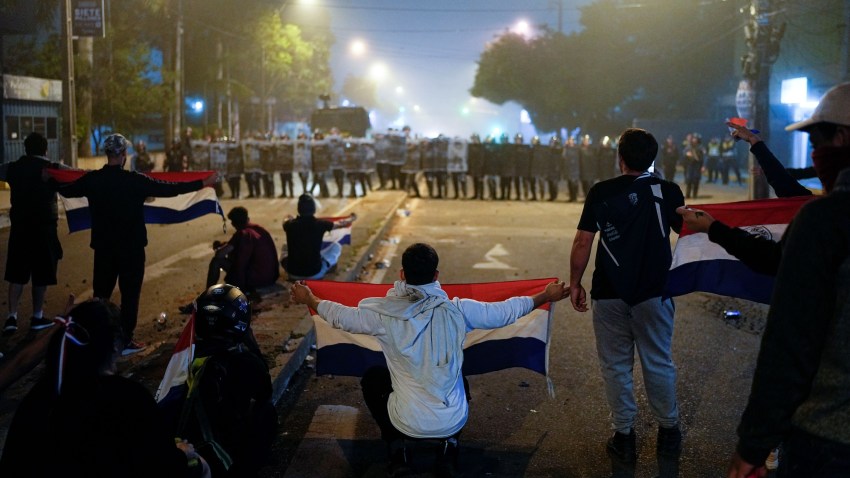Paraguay’s presidential, congressional and gubernatorial elections on April 30 seemed to deliver a clean sweep to the governing Colorado Party, the conservative political force that has ruled the South American country for nearly eight decades almost without interruption. Its presidential candidate, Santiago Pena, a 44-year-old former economist with the International Monetary Fund in Washington, won 44 percent of the vote, mirroring the party’s performance in previous elections.
While taking part in few campaign or media events, Pena’s emphasis on job creation, public security and lowering the costs of gas, energy and housing for the poorest closely matched voters’ priorities. He was also helped by the powerful Colorado Party machine—which is adept at turning out its core voters and winning supporters locally through patronage networks—as well as by a fatally divided opposition.
The main challenger was Efrain Alegre, a three-time presidential candidate who headed the Concertacion, an awkward coalition of leftist and conservative groups anchored by his establishment Liberal Party. The Concertacion developed a range of detailed policy proposals, such as using Paraguay’s abundant hydroelectricity not for export but to power green industrialization at home, switching diplomatic relations from Taiwan to China and channeling social spending directly to parents rather than to fund school meals. But these were overshadowed by Alegre’s main promise: to combat the “mafia” that, he alleged, has taken over Paraguay.

